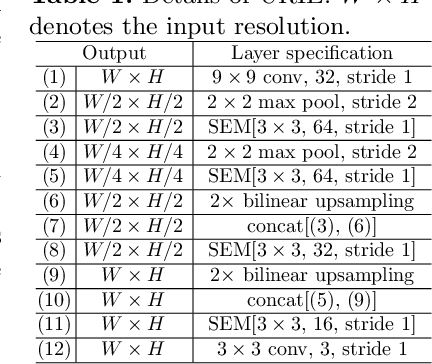Juwon Kang
DiCoTTA: Domain-invariant Learning for Continual Test-time Adaptation
Apr 07, 2025



Abstract:This paper studies continual test-time adaptation (CTTA), the task of adapting a model to constantly changing unseen domains in testing while preserving previously learned knowledge. Existing CTTA methods mostly focus on adaptation to the current test domain only, overlooking generalization to arbitrary test domains a model may face in the future. To tackle this limitation, we present a novel online domain-invariant learning framework for CTTA, dubbed DiCoTTA. DiCoTTA aims to learn feature representation to be invariant to both current and previous test domains on the fly during testing. To this end, we propose a new model architecture and a test-time adaptation strategy dedicated to learning domain-invariant features without corrupting semantic contents, along with a new data structure and optimization algorithm for effectively managing information from previous test domains. DiCoTTA achieved state-of-the-art performance on four public CTTA benchmarks. Moreover, it showed superior generalization to unseen test domains.
Improving Robustness to Multiple Spurious Correlations by Multi-Objective Optimization
Sep 05, 2024



Abstract:We study the problem of training an unbiased and accurate model given a dataset with multiple biases. This problem is challenging since the multiple biases cause multiple undesirable shortcuts during training, and even worse, mitigating one may exacerbate the other. We propose a novel training method to tackle this challenge. Our method first groups training data so that different groups induce different shortcuts, and then optimizes a linear combination of group-wise losses while adjusting their weights dynamically to alleviate conflicts between the groups in performance; this approach, rooted in the multi-objective optimization theory, encourages to achieve the minimax Pareto solution. We also present a new benchmark with multiple biases, dubbed MultiCelebA, for evaluating debiased training methods under realistic and challenging scenarios. Our method achieved the best on three datasets with multiple biases, and also showed superior performance on conventional single-bias datasets.
URIE: Universal Image Enhancement for Visual Recognition in the Wild
Jul 24, 2020



Abstract:Despite the great advances in visual recognition, it has been witnessed that recognition models trained on clean images of common datasets are not robust against distorted images in the real world. To tackle this issue, we present a Universal and Recognition-friendly Image Enhancement network, dubbed URIE, which is attached in front of existing recognition models and enhances distorted input to improve their performance without retraining them. URIE is universal in that it aims to handle various factors of image degradation and to be incorporated with any arbitrary recognition models. Also, it is recognition-friendly since it is optimized to improve the robustness of following recognition models, instead of perceptual quality of output image. Our experiments demonstrate that URIE can handle various and latent image distortions and improve the performance of existing models for five diverse recognition tasks when input images are degraded.
 Add to Chrome
Add to Chrome Add to Firefox
Add to Firefox Add to Edge
Add to Edge